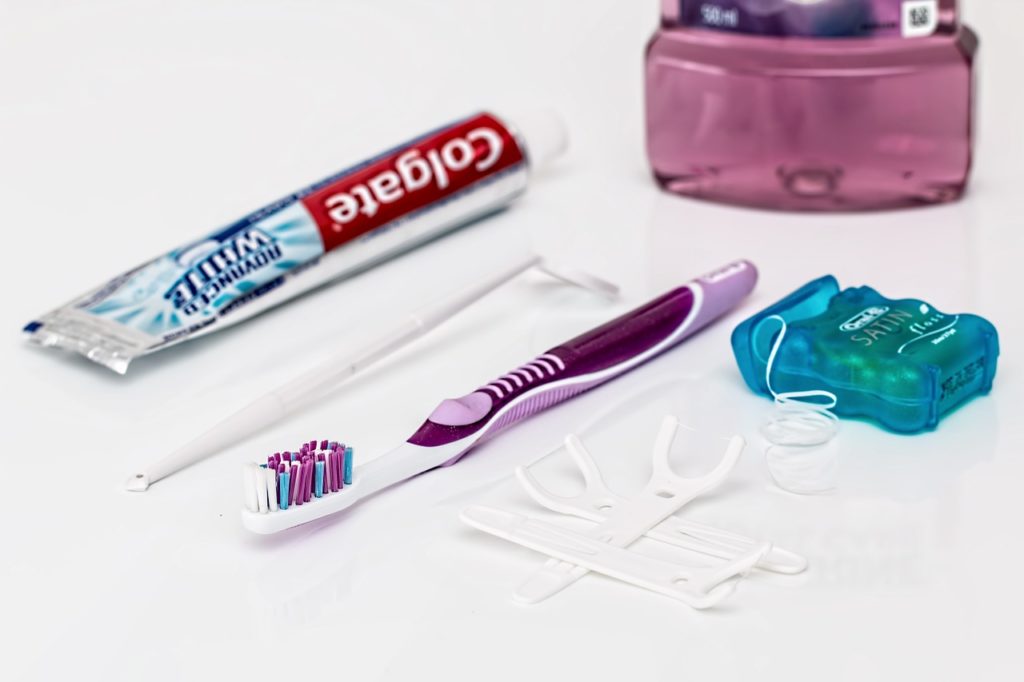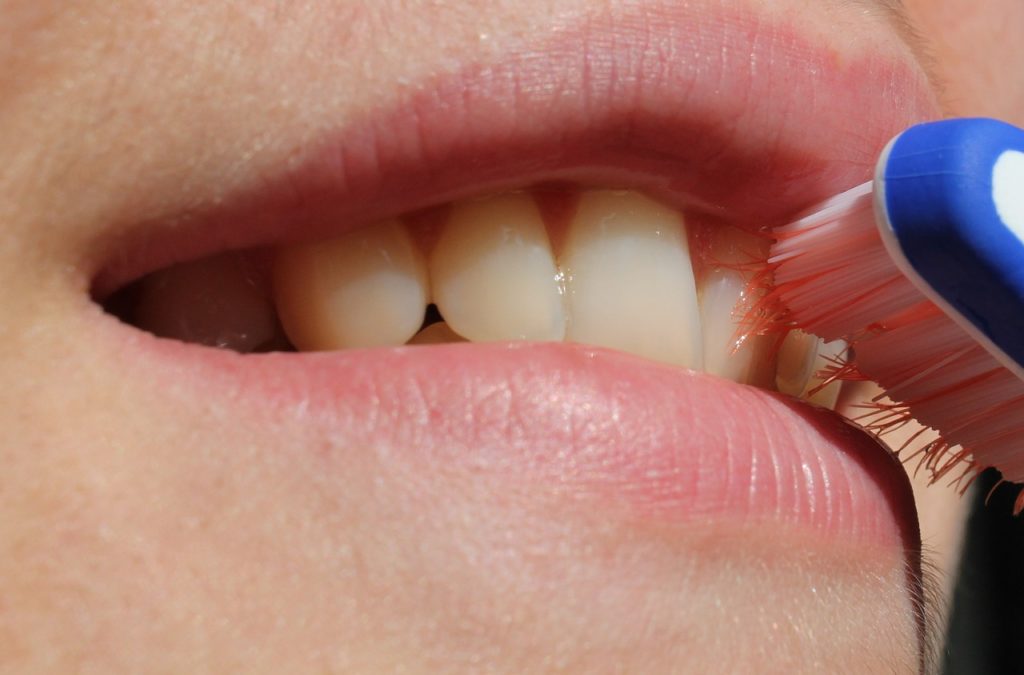Humans have used charcoals for centuries for medicinal purposes. Records dating back to 8000 B.C. show that people used charcoal not just for cleaning their teeth, but also to make different kinds of medicines. The carbon element has antiseptic properties and can be used to treat infections, purify water for drinking, and heal wounds. For this reason, the World Health Organization now lists charcoal as one of the vital medicines that are safe, cheap, and highly effective. Should you check convenience stores, you’re likely to find charcoal teeth whitening products and other types of toothpaste that advertise their carbon content. The question remains – is charcoal safe for teeth whitening? If you’re thinking of using the product for getting whiter and more shinier teeth, it’s time to check with the dentist.
Know the Difference Between Barbecue Charcoal and Activated Charcoal
Before working out if charcoal for teeth whitening is safe, you must understand what is the element. Burning different organic products like peat, olive pits, coconut shells, and wood sawdust slowly can give you a fine powder. When oxidized by exposure to extreme heat or a special gas, the powder becomes activated. In other words, the carbon grains develop an uneven surface, so it can absorb impurities. The key difference between barbecue charcoal and activated charcoal is that the former releases carbon dioxide when burnt. However, activated charcoal does not contain any toxins. In fact, carbon has the ability to bind with toxins and hold them on its surface. So, you see, while charcoal for is safe for teeth whitening, its effectiveness for getting a brilliant smile is debatable.
Charcoal-Based Products Don’t Carry the ADA Seal of Approval
As your dentist will advise, when choosing oral hygiene products, your best bet is to go with brands that carry the “Seal of Approval” given by the American Dental Association. The organization has a team of specialists on board who test every product before giving it approval. Not just all kinds of toothpaste and toothbrushes, but almost all other products must go through rigorous testing before earning the stamp. According to the ADA, charcoal for teeth whitening should be used with caution. Your dental hygiene specialist may not recommend the products for children, and pregnant and lactating women.
Does Charcoal Toothpaste Really Work
Although charcoal has medical uses, its effectiveness in teeth whitening is not proven. In case you have discolored teeth and the stains only extend to the enamel, you could try using charcoal for teeth whitening. Discoloration from black tea and coffee, red wine, sodas, and berries affects only the top surface of your teeth, so carbon might work. You could also consider trying this option for removing stains from tobacco, herbal teas, curries, tomato sauces and gravies, and spices. However, other stains that go deeper may not respond. For instance, stains that result from say, overuse of fluoride toothpaste, injury, certain medicines, or even, worn-away enamel. It is always advisable to check with your dentist for workable solutions in place of trying over-the-counter products that may or may not work.

Charcoal Can Cause More Harm Than Good
In theory, charcoal is safe for teeth whitening. But, using the products can do more harm than good. Here’s why:
- Carbon has an abrasive nature unlike the components of toothpaste that cleanse your teeth gently.
- When you rub charcoal-infused products on your teeth, you risk damage to the enamel.
- Wearing away of the enamel might result in tooth sensitivity. Keep in mind that enamel cannot regenerate.
- Since carbon has the tendency to absorb anything it comes into contact with, it could also take away the positive effects of any medications you’ve been taking.
- In case your teeth have fillings, you risk the charcoal coloring them and could end up with black patches that are unsightly. Ultimately, using charcoal for teeth whitening could give you the reverse of the results you’re looking for.
- If you have ulcers or wounds in your mouth, charcoal for teeth whitening is not advisable. Visit your dentist for a complete check-up before you use the products.
- Take care not to accidentally inhale the powder.
- If you have dental veneers, dental implants, or crowns, talk to your dentist about the effects of carbon before you try it.
- When brushing your teeth with charcoal, don’t rub your gums or you risk scraping the tissues and irritating them.
- Certain brands may contain sorbitol, so you may want to use them with care. Sorbitol is a natural ingredient used as a sweetener in the toothpaste so it has a more pleasant taste. However, ingesting excessive amounts can give you diarrhea, flatulence, and Irritable Bowel Syndrome (IBS).
Use Charcoal Products in the Right Way
If you wish to use carbon products that are safe for teeth whitening and dental hygiene, keep these precautions in mind. Do not apply the paste on a toothbrush and use the regular way. You’ll risk the enamel wearing away and the teeth taking on a yellowish appearance. Apply the required amount (no more than a pinch) on your finger and rub gently. Further, you may need to rinse several times to get the residue out from the spaces between the gums and teeth. Some products are available in capsule form. You could consider opening the capsule, pouring the powder into your mouth and swishing it around for a few minutes.
Although safe for teeth whitening, charcoal tends to stain the ceramic of your bathroom sink. You may have to scrub down surfaces to get rid of the staining. Take care to avoid spills and keep the products out of reach of kids and pets. That’s because carbon can permanently stain the grout in the tiles.
Charcoal Cannot Take the Place of Regular Toothpaste
In case you find charcoal toothpaste that claims to remove dental plaque and prevent caries, know that such products typically don’t contain fluoride. As long as you live in a location that has fluoride in the drinking water, using a basic toothpaste is sufficient to keep your teeth healthy. If you absolutely do want to use carbon, add it as a supplement rather than a replacement for oral hygiene products. Further, make sure you come in for regular dental checkups so the dentist can assess the health of your teeth. Keep in mind that charcoal for teeth whitening is safe, but cannot take the place of conventional oral care.
Charcoal is Typically Touted as a Natural Dental Care Solution
If you’re vegan or concerned about using organic products, carbon toothpaste may seem like the perfect solution. Such products are safe for teeth whitening since they contain activated charcoal. However, you may want to check the label for fluoride because that’s the essential component for preventing cavities. Of course, if you also drink fluoridated water, you could consider using charcoal. But, you need more than just carbon for dental care. Typically, charcoal oral hygiene products have a range of other ingredients that are healthy options for oral care. For instance:
- Natural mint flavoring
- Baking soda
- Coconut oil
- Bentonite clay
- Orange seed oil
- Lemon oil
- Xanthan gum
- Glycerin
- Tea tree oil
Giving Kids Charcoal Toothpaste May Not Be a Great Idea
Considering that charcoal for teeth whitening is safe, you may think about letting your kids try it. But, before introducing the product into your dental routine, you’ll want to check with the kids’ dentist. Here’s why:
- After using charcoal toothpaste, it is essential to rinse out your mouth carefully. Kids may not be able to wash out the crevices and tiny gaps between the teeth and gums. The buildup can make little mouths look untidy.
- While swallowing charcoal paste is not harmful for adults, doctors never advice that you use it for kids. Since children may not know how to spit properly, choose regular products for them.
- You risk staining clothes and creating a huge mess with charcoal.
- Rubbing abrasive carbon on the teeth can wear away the enamel. Since your kids are still learning how to brush their teeth, they may not realize how much pressure to use. You risk damaging the enamel of baby teeth.
You Can Buy Charcoal Products in Different Forms
Using charcoal for teeth whitening is safe, but make sure you buy the correct form after reading the label carefully. Look for terms like “activated” or “food grade” that indicate the product is safe for teeth whitening and any other internal or external uses. You can buy jars or pouches of fine powder that also have a small spoon for measuring out the proper amounts. Some stores and online websites also carry charcoal in pellet form that you can crush using a mortar and pestle. Add a small quantity of water to make a smooth paste. You can use your finger to apply a tiny bit on your teeth. Later, store the paste in an airtight container and refrigerate. Capsules containing activated charcoal are also available.
Use Natural Remedies for Teeth Whitening with Caution
If you’ve been considering using charcoal for teeth whitening simply because it’s a natural product, know that you can try several other organic options.
- Baking soda is a natural whitening agent and can work to remove discolorations from your teeth. Further, the powder has the perfect consistency and balance between softness and harshness. As a result, you can use the compound to remove plaque from your teeth without the risk of enamel erosion. Most importantly, baking soda raises the alkaline levels in your mouth so bacteria cannot grow.
- Using oil at room temperature is another effective method that is safe for teeth whitening. Coconut oil, sesame oil, or sunflower oil when swirled in the mouth can get rid of bacteria and give teeth a whiter appearance.
- Apple cider vinegar contains acetic acid that has a bleaching action on your teeth. But, acetic acid can also erode the soft enamel, so you may want to use it with caution.
- Rubbing the paste of strawberries and pineapple mixed with baking soda can help brighten your teeth. But, eating the whole fruits is more likely to give you the results you want.
- Hydrogen peroxide when mixed with baking soda can act as an effective do-it-yourself option for white teeth. However, you may want to be careful of the proportions of the chemical in any solution. An excess of the chemical can erode your enamel and irritate the gums.
Following a Dental Hygiene Program is a Smarter Solution
In place of exploring solutions that are safe for teeth whitening, you may want to follow a careful routine that prevents their discoloration.
- Avoid consuming too many foods and beverages that contain sugar. Brush afterward.
- Make sure you brush twice a day for two minutes using a toothpaste that carries the ADA seal of approval.
- Floss carefully at least once a day following the directions of your dentist.
- Stop smoking or using any form of tobacco.
- Limit the quantity of tea, coffee, red wine, or sodas you drink in a day. If you must have them, consider using a straw to prevent direct contact with your teeth.
- Visit your dentist regularly for cleaning and plaque removal.
While you can use several natural products like charcoal that are safe for teeth whitening, a wiser option is to work with your oral hygienist for the best solutions. Contact an expert like Dr. Jennifer Silver at Southcentre Dental and ask about the most effective options that will give you the results you’re looking for. After a thorough examination, she will make practical recommendations that don’t have any downsides and are safe.
If you would like to schedule a consultation, go ahead and call this number: (403) 278-1415. We also welcome you to add your details and queries on the Contact Us page. And, we’ll get back to you with responses. Contact us today!
References:

